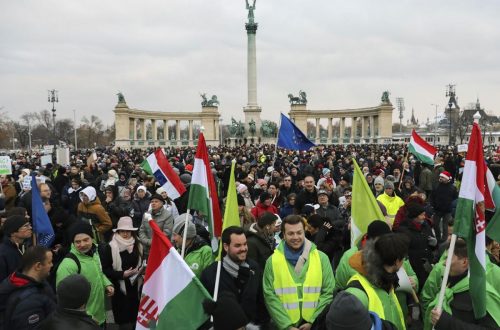Paddy Ashdown is suggesting military intervention in Zimbabwe:
Military intervention in Zimbabwe would be justified to stop the violence there deteriorating into mass slaughter, Paddy Ashdown told The Times last night.
Lord Ashdown of Norton-sub-Hamdon said: “The situation in Zimbabwe could deteriorate to a point where genocide could be a possible outcome – something that looks like [another] Rwanda.”
In that case, international military action, with Britain playing a “delicate role”, would have to be considered, said the former European Union High Representative for Bosnia and Herzegovina.
It would be preferable if intervention, of whatever sort, occurs before the situation deteriorates to such a point at which genocide could be an outcome, but given the past record of the international community Mugabe will be allowed to wreak far more havoc before any intervention occurs. Still, even then many will oppose such an intervention, and I’m not just talking about the anti-imperialists leftists.
Conor Foley is dismissive of the contradictions in Blair’s Chicago speech, and of the scale of the atrocities in Kosovo.
Tony Blair’s Chicago speech, setting out the case for liberal intervention in 1999, was widely praised at the time, although its contradictions have become ever clearer in retrospect.
By exaggerating the scale of the atrocities being committed before Nato’s intervention in Kosovo, and then glossing over the problems of the international administration of the province afterwards, Blair helped to create a template that was to be used in other invasions.
The Blair doctrine is often misrepresentated as always favouring intervention, but it was more realistic than that:
the principle of non-interference must be qualified in important respects. Acts of genocide can never be a purely internal matter. When oppression produces massive flows of refugees which unsettle neighbouring countries then they can properly be described as “threats to international peace and security”. When regimes are based on minority rule they lose legitimacy – look at South Africa.
Looking around the world there are many regimes that are undemocratic and engaged in barbarous acts. If we wanted to right every wrong that we see in the modern world then we would do little else than intervene in the affairs of other countries. We would not be able to cope.
Leaving aside whether there is an exaggeration of the scale of atrocities in Zimbabwe, as some might argue, what about Blair’s five tests for humanitarian intervention:
First, are we sure of our case? War is an imperfect instrument for righting humanitarian distress; but armed force is sometimes the only means of dealing with dictators.
The case against Mugabe is proven.
Second, have we exhausted all diplomatic options? We should always give peace every chance, as we have in the case of Kosovo.
Perhaps not, but the odds of Mugabe doing the right thing are low. There may be some chance if South Africa pulls out its finger.
Third, on the basis of a practical assessment of the situation, are there military operations we can sensibly and prudently undertake?
Depends on who is involved. Mugabe’s armed forces are probably only suitable for repression. They would fold instantly in case of an attack from a major power.
Fourth, are we prepared for the long term? In the past we talked too much of exit strategies. But having made a commitment we cannot simply walk away once the fight is over; better to stay with moderate numbers of troops than return for repeat performances with large numbers.
Could there be a role for the African Union, as in Darfur, to avoid long-term placement of Western troops in a country where the return of colonialism is feared by some. On the negative side, I meet lots of intelligent Zimbabwean refugees in my work, which is why this post rang so true.
And finally, do we have national interests involved? The mass expulsion of ethnic Albanians from Kosovo demanded the notice of the rest of the world. But it does make a difference that this is taking place in such a combustible part of Europe.
We do. It is our national interests to prevent Zimbabwe degenerating and destablising the surrounding countries.
I make that 3.5 out of 5.


